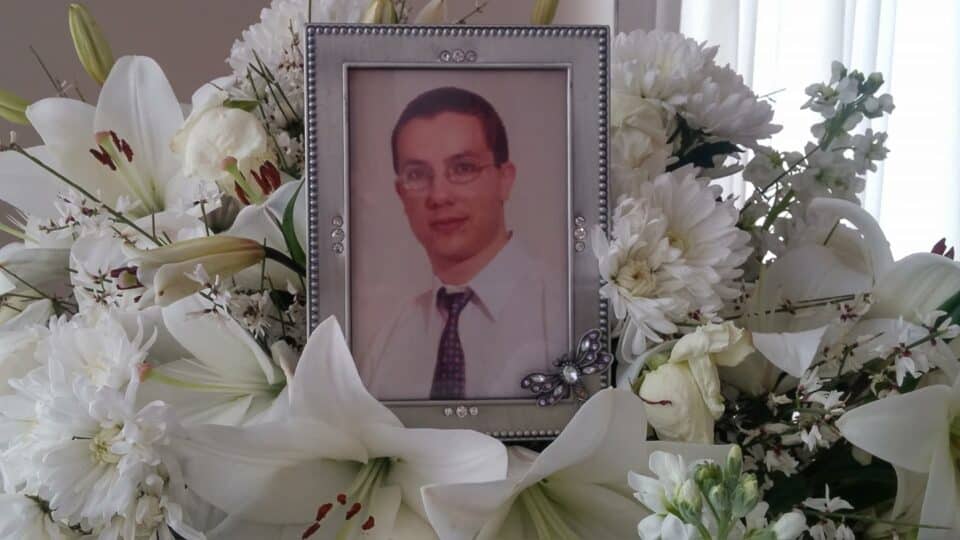Friday’s proceedings of the inquest looking into the death of National Guard officer Thanasis Nicolaou, whose lifeless body was found under a bridge in Alassa in 2005, saw forensic pathologist Dimitra Karayianni determining in her testimony that strangulation was the cause of death.
Karayianni is the first witness brought forward by Nicolaou’s family, tasked with shedding light on the circumstances surrounding the soldier’s death, challenging previous assertions of suicide.
She examined the hyoid bone of the deceased along with fellow forensic pathologist Emmanuel Agapitos after the exhumation of the body.
Prior to her testimony, the judge issued recommendations to both parties to maintain decorum during the proceedings.
Karayianni revealed that she and Agapitos had previously exchanged opinions and letters pertaining the case and stressed that the latter proceeded to incise the bone in her absence.
Reading an excerpt from one of the last letters Agapitos sent her, she said that the examination was still in progress and undergoing technical checks.
Karayianni also requested detailed updates on medical procedures performed by Agapitos, underlining her desire not to be excluded from the process.
She then recounted her shock and displeasure upon learning from Agapitos that over 300 incisions had been made on Nicolaou’s body in her absence, adding that the pieces of the hyoid bone lacked numbering, an anomaly pointed out to Agapitos.
Karayianni further detailed an incident where Agapitos made a dismissive gesture when she raised concerns about the lack of numbering. She stressed the irregularity of the bone pieces’ surfaces, indicating that the anomaly resulted from pressure and trauma sustained on the bone when the victim was still alive.
When asked about the abnormality, she explained that it can be linked to forced pressure, often associated with violence.
In her testimony, Karayianni also addressed the bone’s lack of genetic abnormalities, thus ruling out a congenital cause.
To illustrate her findings, she presented a hyoid bone to the court and broke it in front of the witnesses and the judge, demonstrating the impact of a clean break versus a break with irregularities.
In conclusion, Karayianni clarified that the peculiarities observed in the hyoid bone are indicative of a traumatic injury sustained while Nicolaou was still alive and therefore “consistent with strangulation or asphyxiation.”







Click here to change your cookie preferences